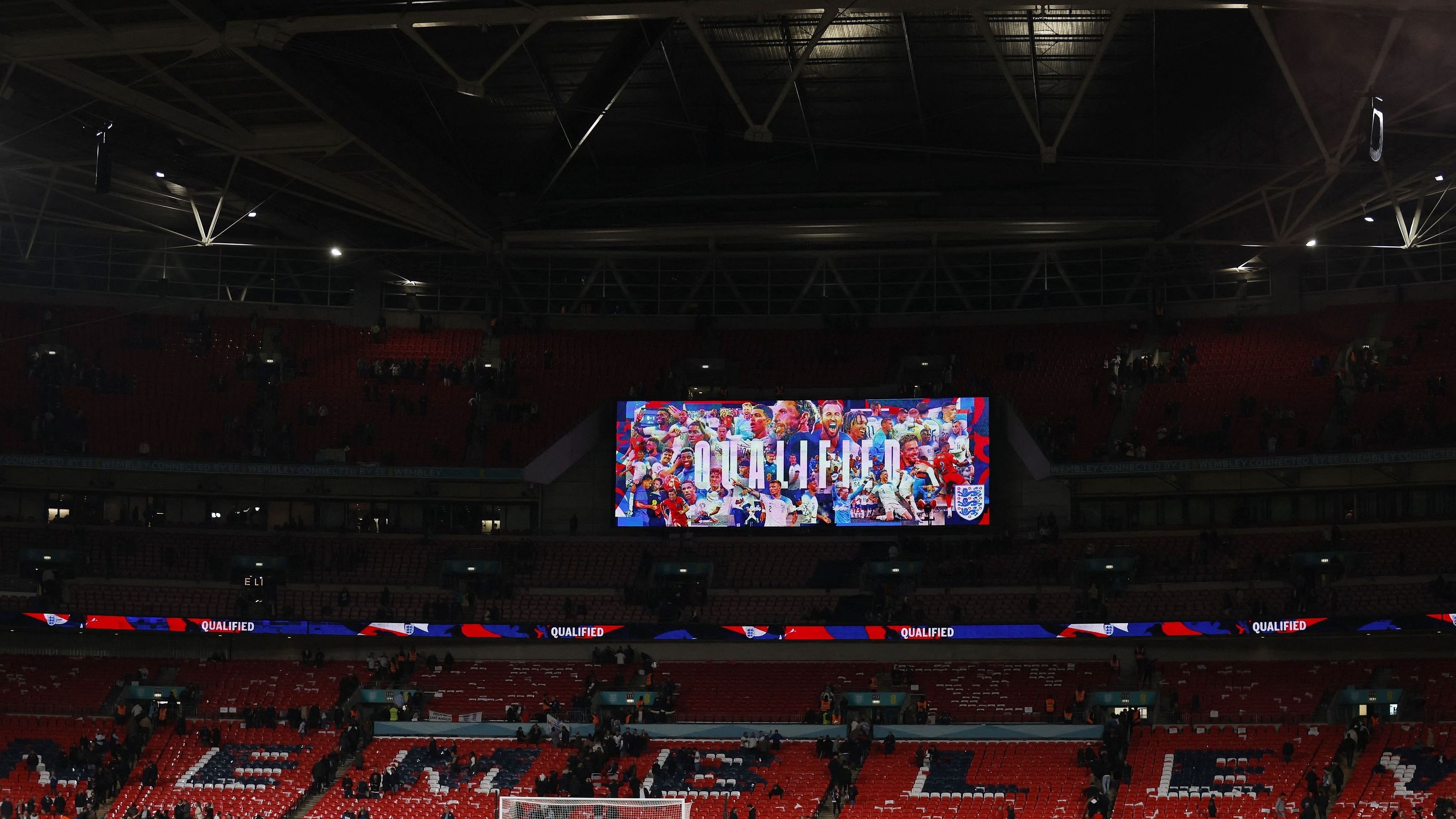
Wembley Stadium.
Credit: Reuters Photo
Moments before the soccer teams of England and Italy kicked off an important match October 17 in London, the players bowed their heads as the announcer at Wembley Stadium read out a short text and asked fans to observe a minute’s silence.
The same scene played out at other national team games elsewhere in Europe all last week, part of an edict issued by European soccer’s governing body to all of its members calling for the remembrance of “all the members of the European football family killed in recent days in Europe and Israel.”
But viewers tuning in for the games on the Qatari-owned network beIN Sports saw none of it.
That was the result of a decision by beIN Media Group, the biggest owner of European soccer rights in the Middle East and North Africa. Instead of airing the commemorations, it modified its match broadcasts so they did not include any images or sounds noting the victims of Hamas attacks in Israel — which is a member of European soccer’s governing body — or the shooting deaths of two Swedish fans by a Tunisian assailant in an incident that police officers in Belgium have labeled “terrorism.”
Instead of tributes and moments of silence, beIN broadcasts aired extended studio discussions that hewed solely toward soccer and then cut abruptly to the start of the games.
The plan, according to a person familiar with the network’s planning but not authorized to discuss it publicly, was to avoid what were described as any “flashpoints” related to events in the Mideast that might inflame viewers or cause offense in the Arab world, where there is widespread support for the Palestinian cause.
Qatar has emerged as a major diplomatic player and an important U.S. ally with open lines of communication with Hamas. BeIN, its multibillion-dollar sports network, acts as another way for the tiny country to exert its influence on European sports leagues and bodies with its lavish spending.
The changes to the broadcasts began when beIN sent a note to its reporters reminding them to maintain a neutral stance on the Israeli-Hamas conflict after one of its commentators on its Arabic language channel appeared to highlight support for Palestinians in the buildup to a Premier League game that took place in the hours after the terrorist attacks Oct. 7.
Over the weekend, when Europe’s major leagues returned to the field for the first time since the start of the war, beIN decided to change its usual programming for games across the Continent, once again cutting to the live feed from stadiums only seconds before kickoff — a change that was reflected in its own TV guide, which told viewers that coverage would start 1 minute before kickoff. That meant, though, that coverage of the first moments of remembrance for victims of the war, like those held before every Premier League stadium played over the weekend, were once again shielded from beIN viewers.
The Premier League, one of the world’s most popular and most watched sports leagues, has also sought to avoid inflaming passions related to the war in Gaza. Last week, the league announced a ban on Palestinian and Israeli flags at its stadiums until further notice. That ban did not stop some supporters from displaying flags at games, however: When Tottenham Hotspur, a team with a large Jewish following, played Monday night — its first home game since the prohibition on flags began — Israeli flags were visible in the stands.
“A football match is not an appropriate arena to display flags of any political or religious affiliation or anything that could possibly be considered inflammatory — this can include national flags during times of political conflicts, campaigns or issues,” Tottenham wrote in an email to its fans before Monday’s game against Fulham.
The ferocity of feelings has led to crises that have touched European soccer in different ways, from the suspension of several players for sharing social media statements to an ugly spat in France between the country’s interior minister, Gérald Darmanin, and one of the nation’s most celebrated players, Karim Benzema. In England, the national soccer federation got caught in a bitter dispute after not bowing to pressure to light a steel arch above Wembley Stadium in the colors of the Israeli flag before a match, something it had done to express support for Ukraine after the invasion by Russia.
The federation’s CEO, Mark Bullingham, later issued an apology to “recognize that our decision caused hurt in the Jewish community.”